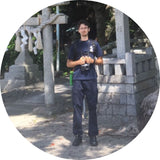Bonenkai: Japan's "Forget-the-Year Parties"

New Year's is a special time celebrated around the world with different foods, traditions, and festivities. In Japan, New Year's is taken quite seriously. It is a time for renewal, cleansing, and resolution, as well as a time to gather with family and loved ones to deepen bonds. Many traditions are involved in these celebrations, from foods such as osechi, soba, mochi, and ozoni to rituals such as hatsumode and hatsuhinoade.
Mixed into all of these traditions are, of course, parties! And Japan has not one, but two New Year's celebrations: Bonenkai and Shinnenkai. One celebrates the end of the previous year, and the other rings in the new one. While the latter is likely a more familiar concept to most people, the idea of a pre-New Year's party is rather unique. Let’s take a look at what to expect and know for a Bonenkai:
Held before the New Year has arrived, Bonenkai are times to let loose and free the emotions and baggage of the previous year. In fact, directly translated, Bonenkai literally means “forget-the-year party.” It is a celebration shared by friends, club members, college organizations, and most famously, co-workers. Most Bonenkai are held by businesses and companies for their workers and are usually organized by separate departments. This means the number of people attending the party can vary, but generally, they last for two to three hours and usually start with a speech from a manager or director.

With the potential to include large groups (and a lot of drinking), Bonenkai are often held in izakayas or other larger venues. A full-course meal with an all-you-can-drink menu plan is also typically included in the average 4000–5000-yen cost of participation. By sharing drinks and food with one another, Bonenkai offer the opportunity for people to speak more openly with one another without being as cognizant of social and business hierarchies, or interact with coworkers they may otherwise rarely get a chance to know. These gatherings set the stage for more intimate connecting, with some venues offering floor seating where coworkers are freer to move around and relax.
And while ranks and hierarchies may be less noticeable in the free-flowing conversation, they do still exist in the free-flowing alcohol shared around the table. Known as oshaku (which is also the word for the vessel in which sake is served), there is an etiquette associated with serving sake to others you’re eating with. In addition to being related to rank, pouring for others is also a general sign of respect that is practiced year-round. Things to keep in mind are holding the serving bottle with both hands, making sure the label is facing up towards whoever you’re pouring for, and adding a phrase of gratitude to the person. When being served, also make sure to hold your glass with both hands and take a sip before setting your glass down.

With this “put aside our ranks and have fun” atmosphere, it is common to hear workers speaking their minds in an open, casual way to their superiors, something that is generally avoided in day-to-day work life. Given this opportunity to speak freely, Bonenkai become a place where frustrations about anything from operations to interpersonal relations can be brought to the attention of managers and hopefully get resolved in the coming year. This openness not only leaves room for growth and resolution but also strengthens bonds between coworkers.
Bonenkai are also events where newbies get to prove themselves and show their reliability, as it’s usually junior members of a team who are given the title “kanji,” or organizer. This duty is generally assigned regardless of one’s normal position or title. Newcomers can earn recognition and score points with managers if it turns out to be an amazing time for all.
With all the drinking involved in Bonenkai, funny things are also to be expected. Karaoke and comedic performances are not uncommon. In fact, it’s an event that gives people the chance to show off some of their hidden performer talents in an effort to entertain their fellow coworkers.
About the author:
 Kevin Kilcoyne
Kevin Kilcoyne




1 comment
This blog on Bonenkai beautifully captures the essence of this unique Japanese tradition. I love how it dives into the cultural significance of letting go of the past year and celebrating with colleagues and friends. The detailed description of how these parties bring people together is fascinating. It’s a wonderful read for anyone interested in Japanese customs.